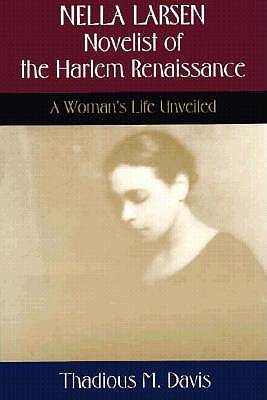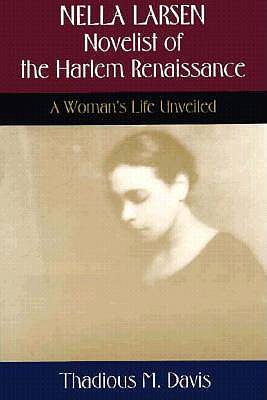
- Retrait gratuit dans votre magasin Club
- 7.000.000 titres dans notre catalogue
- Payer en toute sécurité
- Toujours un magasin près de chez vous
- Retrait gratuit dans votre magasin Club
- 7.000.0000 titres dans notre catalogue
- Payer en toute sécurité
- Toujours un magasin près de chez vous
Nella Larsen, Novelist of the Harlem Renaissance

A Woman's Life Unveiled
Thadious M DavisRécompenses
Description
Nella Larsen (1891-1964) is recognized as one of the most influential, and certainly one of the most enigmatic, writers of the Harlem Renaissance. With the instant success of her two novels, Quicksand (1928) and Passing (1929), she became a bright light in New York's literary firmament. But her meteoric rise was followed by a surprising fall: In 1930 she was accused of plagiarizing a short story, and after 1933 she disappeared from both the literary and African-American worlds of New York. She lived the rest of her life--more than three decades--out of the public eye, working primarily as a nurse. In a remarkable achievement, Thadious Davis has penetrated the fog of mystery that has surrounded Larsen to present a detailed and fascinating account of the life and work of this gifted, determined, yet vulnerable artist.
In addition to unraveling the details of Larsen's personal life, Davis deftly situates the writer within the broader politics and aesthetics of the Harlem Renaissance and analyzes her life and work in terms of the current literature on race and gender. This book, with the prodigious amount of new material and insights that Davis provides, is a landmark in African-American literary history and criticism.Spécifications
Parties prenantes
- Auteur(s) :
- Editeur:
Contenu
- Nombre de pages :
- 496
- Langue:
- Anglais
Caractéristiques
- EAN:
- 9780807120705
- Date de parution :
- 01-05-96
- Format:
- Livre broché
- Format numérique:
- Trade paperback (VS)
- Dimensions :
- 153 mm x 228 mm
- Poids :
- 784 g

Les avis
Nous publions uniquement les avis qui respectent les conditions requises. Consultez nos conditions pour les avis.








